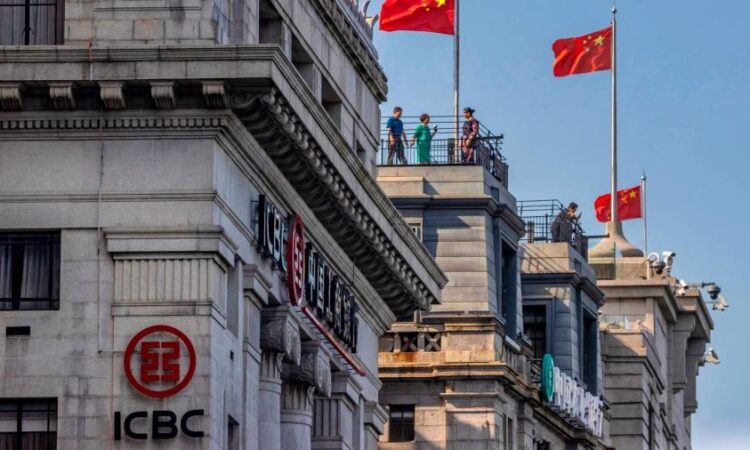
China’s biggest banks say they have escaped unscathed from the financial crisis in the US and Europe, following the collapse of Silicon Valley Bank and Credit Suisse.
China’s top lenders — Industrial and Commercial Bank of China, China Construction Bank, Agricultural Bank of China and Bank of China — have all reported there was no direct damage to their books from last month’s emergency rescue of Credit Suisse by UBS and failures in the US banking sector.
“Even from an indirect or spillover effect perspective, the impact [to China’s banking sector] is very limited,” said Ji Zhihong, vice-president of the country’s second-largest bank CCB at a briefing last week, when all the main banks reported strong earnings.
China’s banks and other financial institutions are still reporting to regulators the results of stress-testing against what they see as a potential minefield of new risks that includes exposure to European and regional US banks. According to staff carrying out the tests, only limited exposure has been found.
The scrutiny highlights lingering market concerns over Chinese banks’ cash management and liquidity against the backdrop of growing geopolitical tension and financial system turbulence.
Zhang Yi, vice-president of Bank of China, which has the largest amount of foreign exposure, said that while his bank had not been hit by the crisis, it still planned to adjust offshore assets and deposits.
“No matter what the reasons were for the problematic foreign institutions, it eventually results in stress and runs on deposits . . . we’ll make sure that maturity and pricing between assets and deposits has no big mismatch,” he said.
The biggest lesson for China’s financial system planners and regulators is not to “create the environment” that puts banks into a similar position as SVB and Credit Suisse, said Chen Long, co-founder of Beijing-based research company Plenum.
“The radical change of monetary policy is a very bad idea. If you have to raise interest rates by 300 [basis points] in a year, that is definitely going to cause a lot of strain on the banking system. Some banks, if they are well managed, have ways to prepare. But not everyone is well managed.”
ICBC, the world’s biggest bank, reported net profit of Rmb360bn ($52bn) for 2022, up 3.5 per cent on the prior year. The other top banks reported similarly robust — or better — profit growth.
The net interest margin, a key gauge of bank profitability, remained steady or eased slightly for the top banks, suggesting resilience in their credit books.
The results came despite subdued economic growth in China and during an unprecedented downturn and high levels of corporate debt in the property sector, a major driver of the economy.
The banking crisis has dented China’s faith in the wisdom of regulators in Europe and the US. Chinese regulators had been following measures such as requiring banks to set up “living wills” after bankruptcy or takeover events.
“The framework of regulating banks globally now looks insufficient at least,” Chen said.
“The irony is that the Swiss are viewed as leaders in how to regulate banks. Then Credit Suisse, the [country’s] second-largest bank failed,” he added.
Despite better than expected financial results, China’s top lenders each warned of persistent risks, stemming mostly from the property sector.
At CCB, the non-performing loan ratio for property nearly doubled year on year. China’s real estate sector has been rocked by a series of developer bond and loan defaults, as stringent debt control on the real estate sector choked the industry’s liquidity lines.
“The property sector will take time to recover, so the hangover on asset quality will last for a while,” said Liu Jiandong, chief risk officer at the Bank of China.





